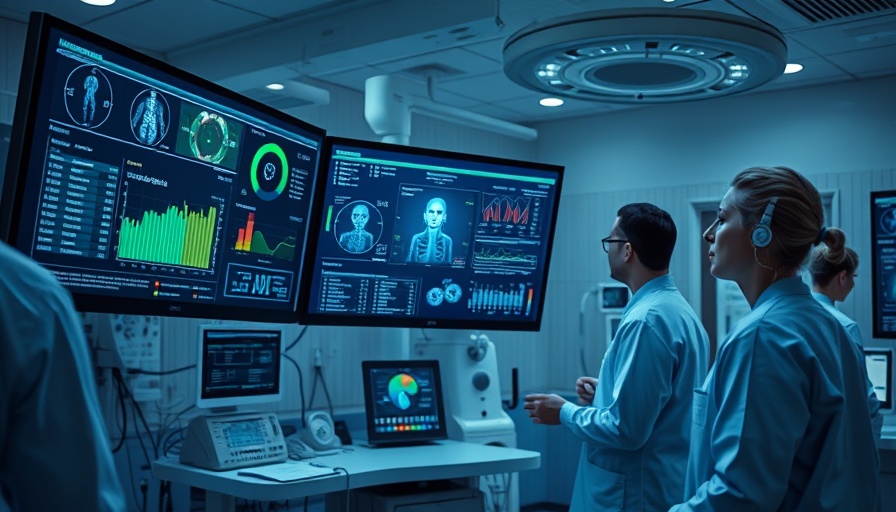
AI Technology in Healthcare: A Revolutionary Shift
Imagine a world where the risk of hospital-acquired conditions like bedsores can be predicted and mitigated by artificial intelligence (AI). Recent research from the University of Southern California (USC) demonstrates that AI can play a crucial role in patient care, particularly in reducing the risks associated with bedsores, which affect millions of hospital patients every year.
Understanding Bedsores and Their Risks
Bedsores, also known as pressure ulcers, manifest when a patient lies in one position for extended periods, leading to skin breakdown. Their prevention is a significant challenge in healthcare, especially in long-term hospital stays. The USC study highlights the importance of early detection and intervention, stating that timely assessments can drastically reduce the incidence of these painful wounds. By integrating AI into patient monitoring systems, healthcare providers can enhance their capabilities to identify at-risk patients, ensuring timely interventions.
The Mechanics of AI in Predicting Bedsores
The technology employed in the USC study utilizes advanced algorithms to analyze patient data, including mobility levels, age, and health history. This machine learning model processes vast amounts of data, identifying patterns that humans might overlook. As software gets smarter, the predictions become increasingly precise, allowing healthcare staff to allocate resources more effectively. Imagine being a small business owner who sees how this kind of tech innovation could not only benefit hospitals but also influence multiple sectors, from real estate to wellness.
Practical Implications for Small Business Owners
As small business owners explore the viability of AI within their operations, understanding applications beyond personal healthcare can inspire innovative solutions tailored to their unique challenges. For instance, AI can assist in customer management, predicting buying trends or analyzing risks in real estate. The USC model serves as a template for how machine learning can shift paradigms across industries, demonstrating the tangible benefits of AI.
Counterarguments: Limitations of AI in Healthcare
While the findings from USC are promising, critics argue that reliance on AI might underestimate the human element crucial in healthcare. The technology is not fail-proof and may lead to overconfidence among healthcare professionals. There remain concerns about patient data security and ethical implications surrounding AI decision-making. As stakeholders in various industries, it is essential to weigh these factors carefully when considering the integration of AI technologies.
Predictive Capabilities: What Lies Ahead
The broader implications of AI's predictive capabilities extend beyond healthcare. Future advancements may lead to real-time data processing and preventive measures across various domains. Small business owners should consider how predictive analytics could enhance their strategic planning. Businesses that harness data-driven insights will be better positioned in competitive markets, highlighting the need for investment in such technologies.
Call to Action: Embrace the AI Revolution
The potential for AI innovations is vast. Small business owners looking to improve and streamline operations should actively seek out tools that leverage AI technology. By investing in these advancements, your business will not only remain competitive but may also contribute to groundbreaking shifts across industries.
 Add Row
Add Row  Add
Add 




Write A Comment